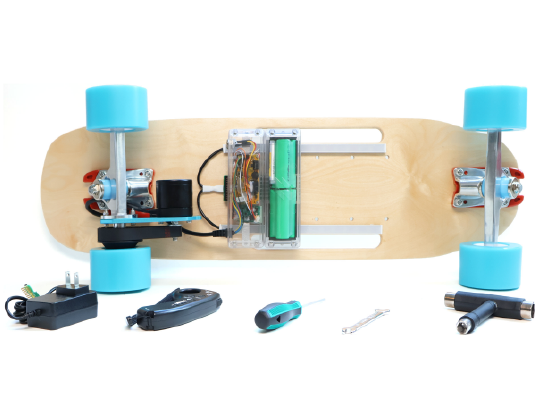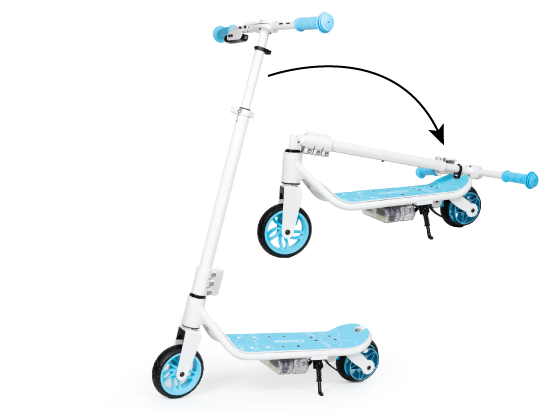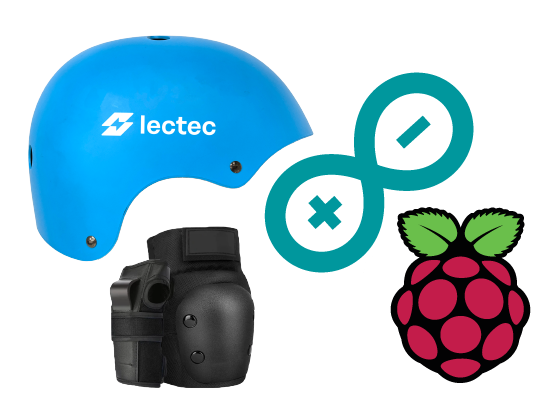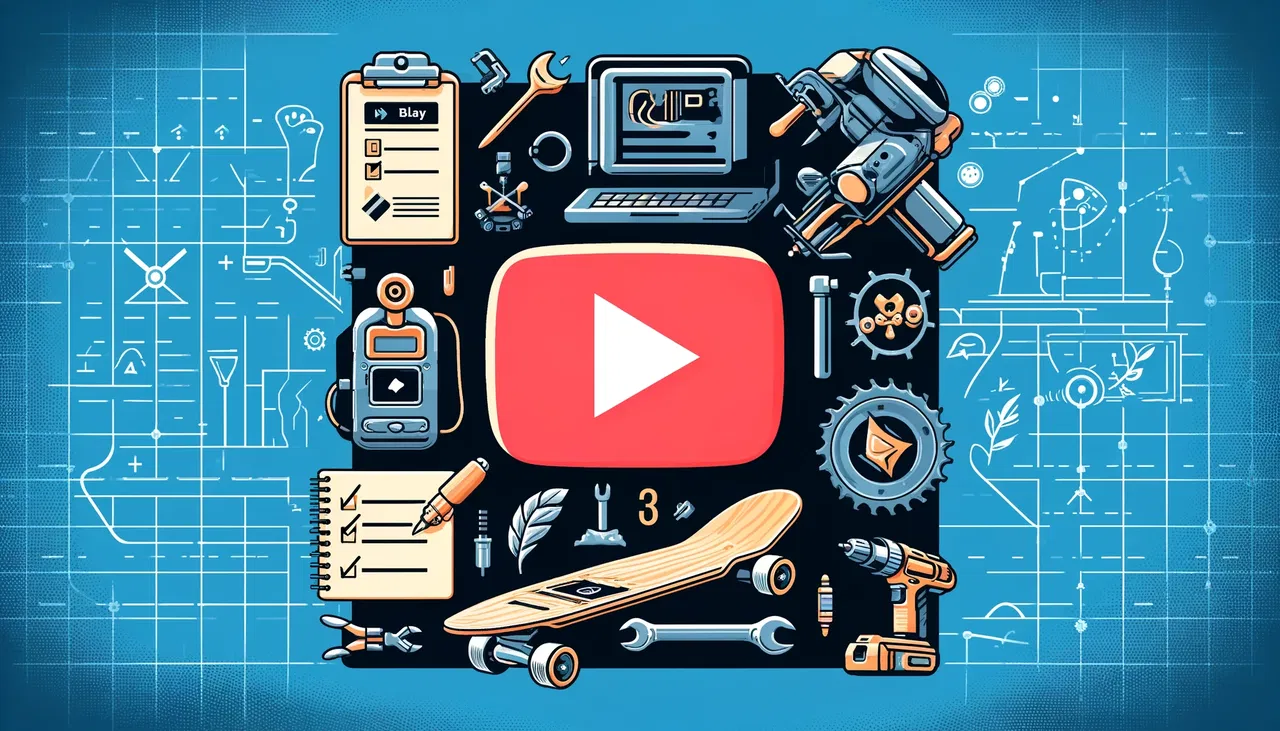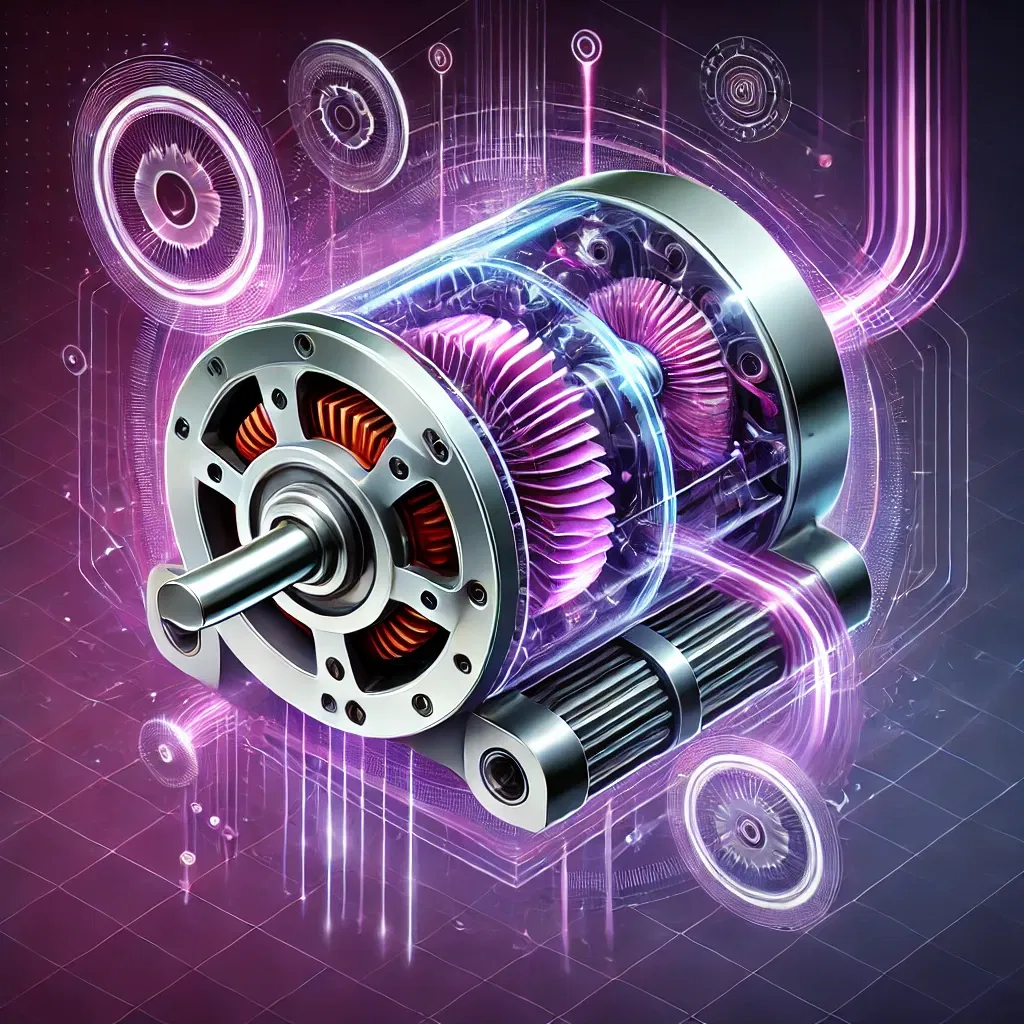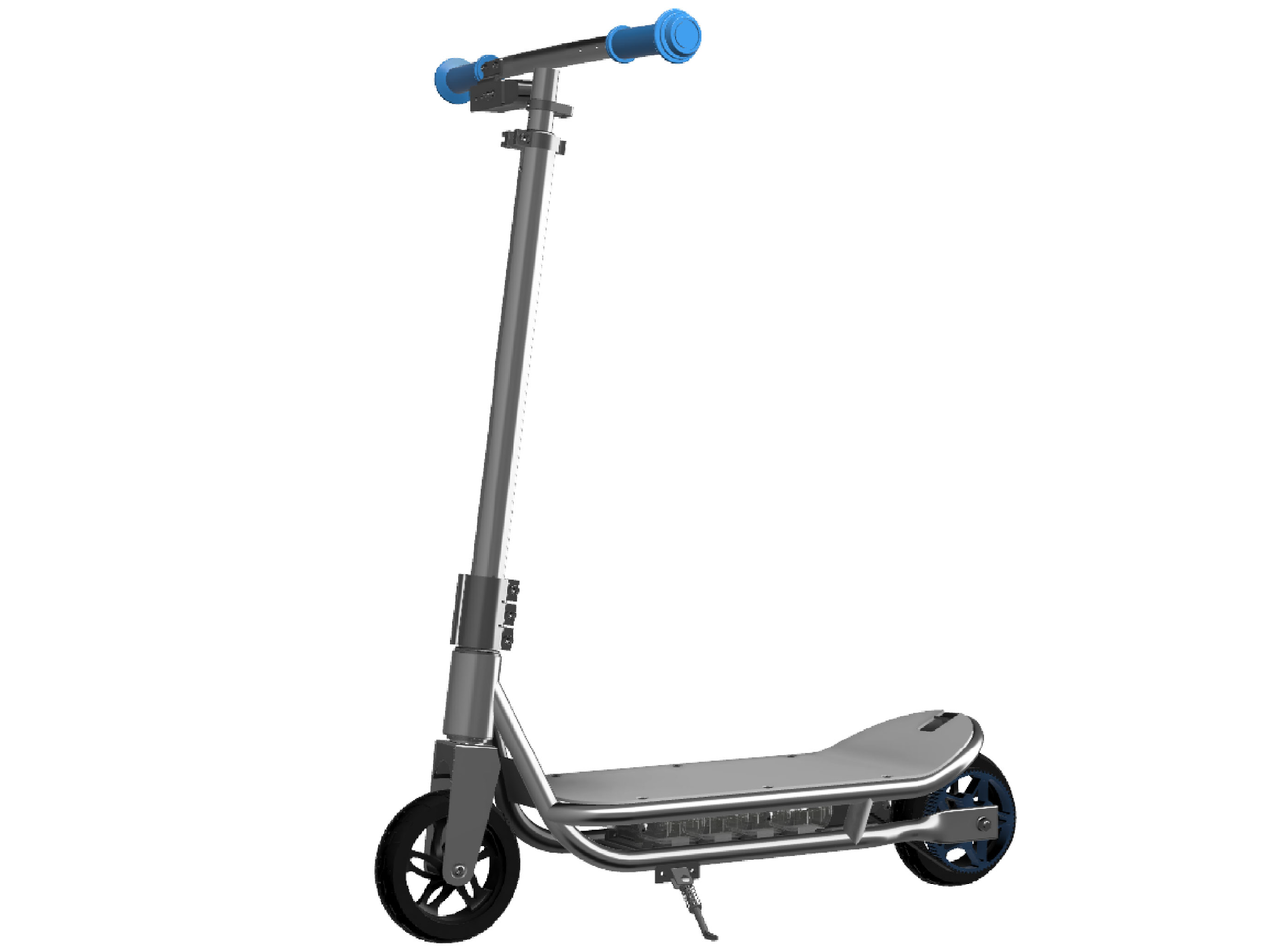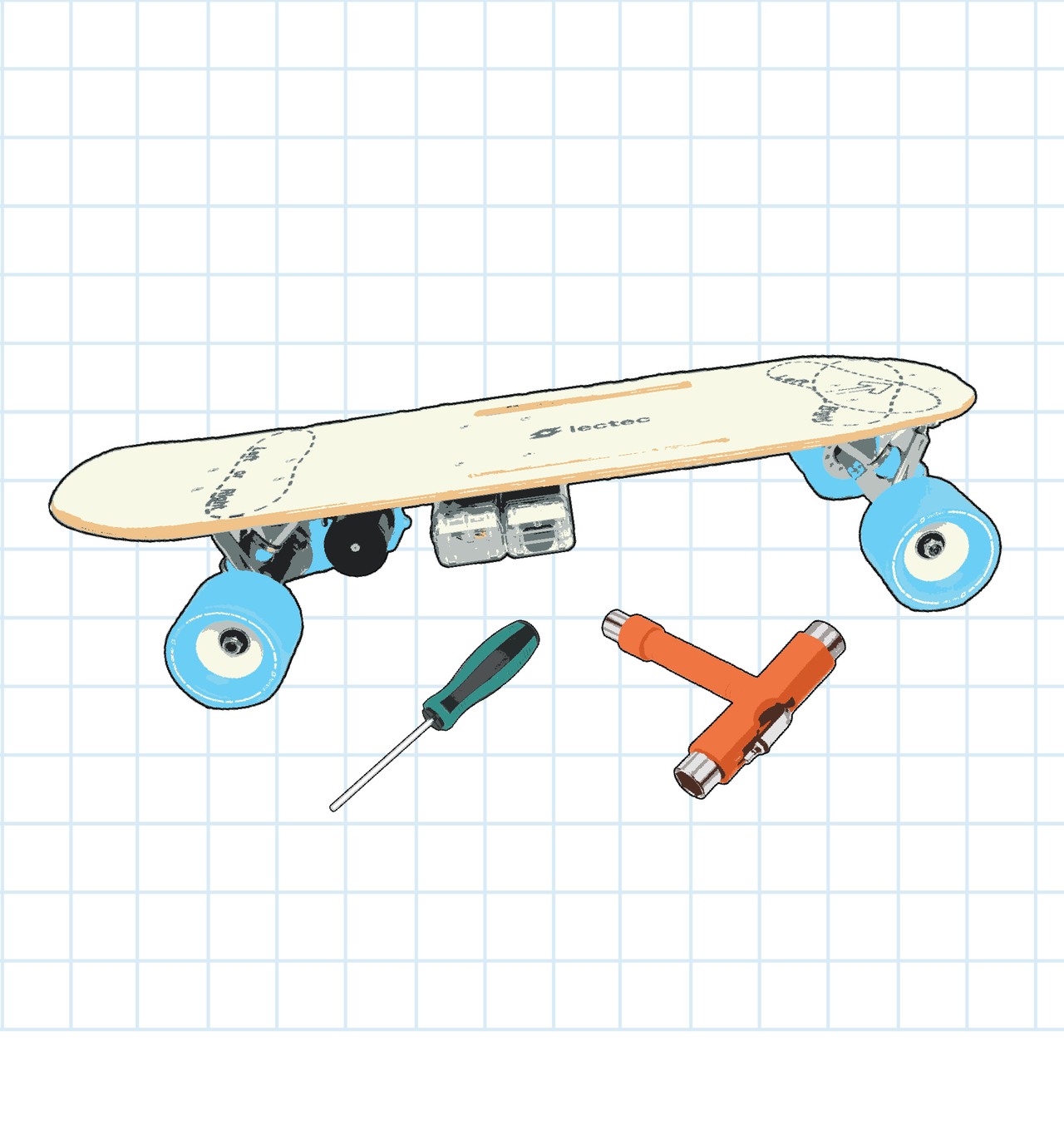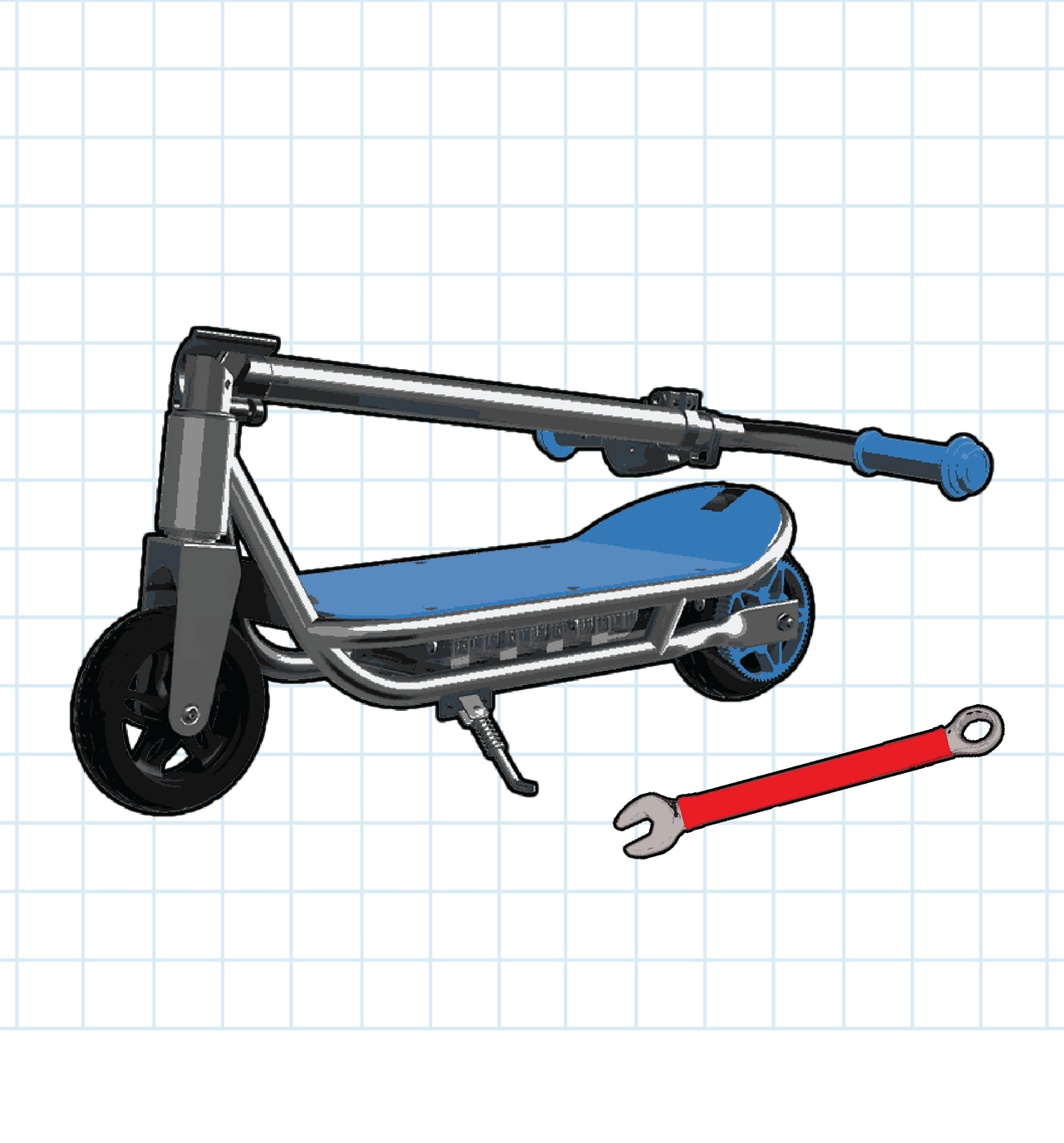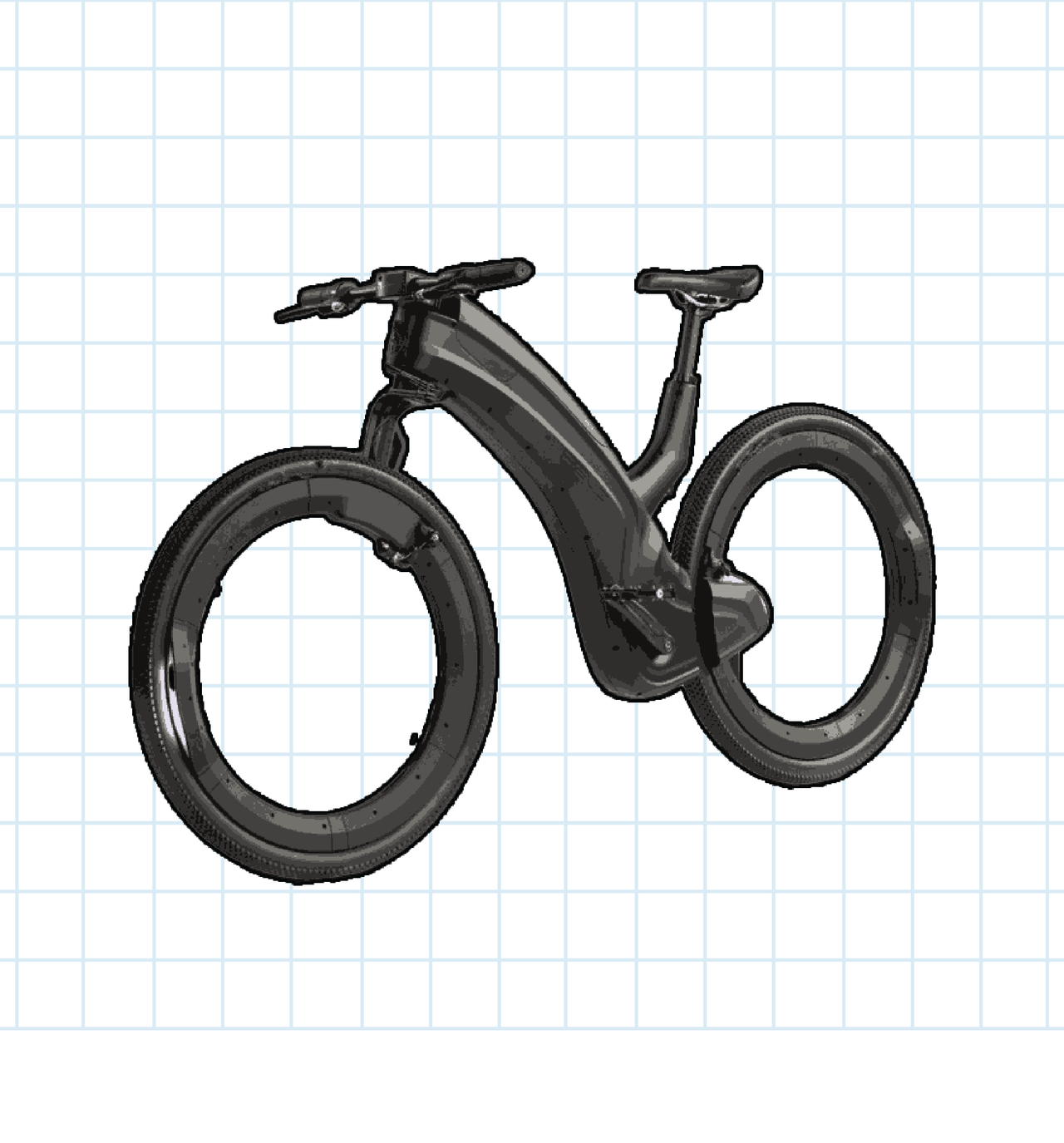• STEM
Science Kits for Kids: Hands-On Learning for STEM
Science kits and student design kits make STEM learning exciting and hands-on, but which ones are worth it? Read on to discover the best kits for sparking real-world skills and creativity.
View Homepage

Written by
Edison Chen
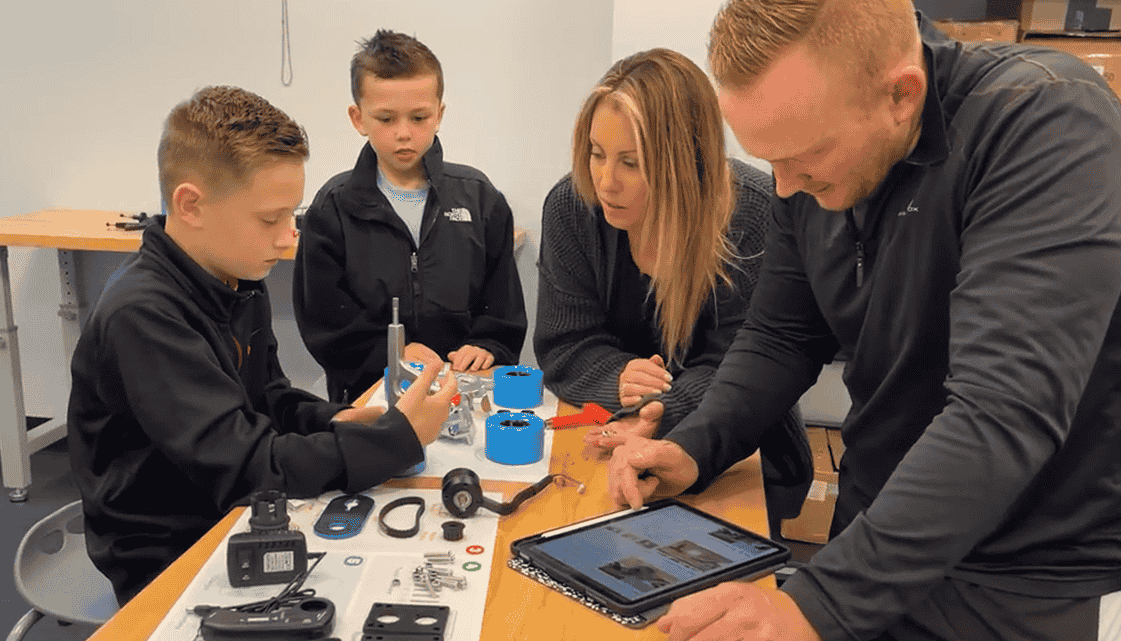
Overview
Imagine a learning experience where students don’t just study science, technology, engineering, and math, they build, experiment, and bring their knowledge to life.Science kits make this possible, both in classrooms and beyond, by transforming theoretical concepts into hands-on projects that spark curiosity and excitement. Whether students are assembling robots at home or constructing electric vehicles in school, these kits provide a versatile platform for bridging the gap between abstract learning and practical application, empowering students to explore STEM on their own terms.

The Benefits of STEM Kits for Students
Active Learning:
Engaging directly with materials through STEM kits promotes active participation, leading to better examination performance. Research indicates that active learning can improve student performance by up to 6% compared to traditional lectures.
Critical Thinking and Problem-Solving:
Hands-on experimentation with STEM kits fosters critical thinking and problem-solving abilities by stimulating cognitive abilities as early as 3 years old. Studies show that students that used STEM kits have demonstrated enhanced critical thinking skills.
Collaboration and Teamwork:
Utilizing STEM kits in group settings helps develop communication and teamwork skills. Collaborative learning has been shown to improve student achievement and interpersonal skills.
Real-World Application:
STEM kits bridge abstract concepts with real-world scenarios, making learning more relevant. Applying theoretical knowledge to practical tasks enhances understanding and retention.
Encouraging Interest in STEM Careers:
Hands-on projects with STEM kits can spark curiosity and inspire future careers in STEM fields. "Between the ages of 5 and 8, 46% experienced a STEM-related track in school. 53% of this population is currently working in a job that either entirely or heavily involves STEM.”
Confidence and Independence:
Completing STEM projects boosts students' confidence and encourages independent learning. Students who engage in hands-on learning report higher self-efficacy and motivation.
Science Kits for Kids Available Online
If you're looking to introduce your students or children to hands-on STEM learning, here are some of popular and educational student design kit available online:
Lectec Electric Vehicle Kits
Lectec offers modular electric vehicle kits that let students build and ride their own skateboards or scooters, learning engineering, mechanics, and science hands-on. Compact and classroom-ready, these kits support flexible, independent learning anywhere. With our Arduino and Raspberry Pi modules, students can customize their rides with smart features and real-time data, gaining experience in coding, control systems, and even AI.
Key Skills Taught:
Mechanical Engineering:
Assembling drive systems, wheels, and structural components.
Electrical Systems:
Integrating motors, batteries, and controllers.
Coding & Control:
Enhancing functionality with Arduino for sensor feedback and custom automation.
AI & Machine Learning:
Utilizing Raspberry Pi for object detection and intelligent navigation.
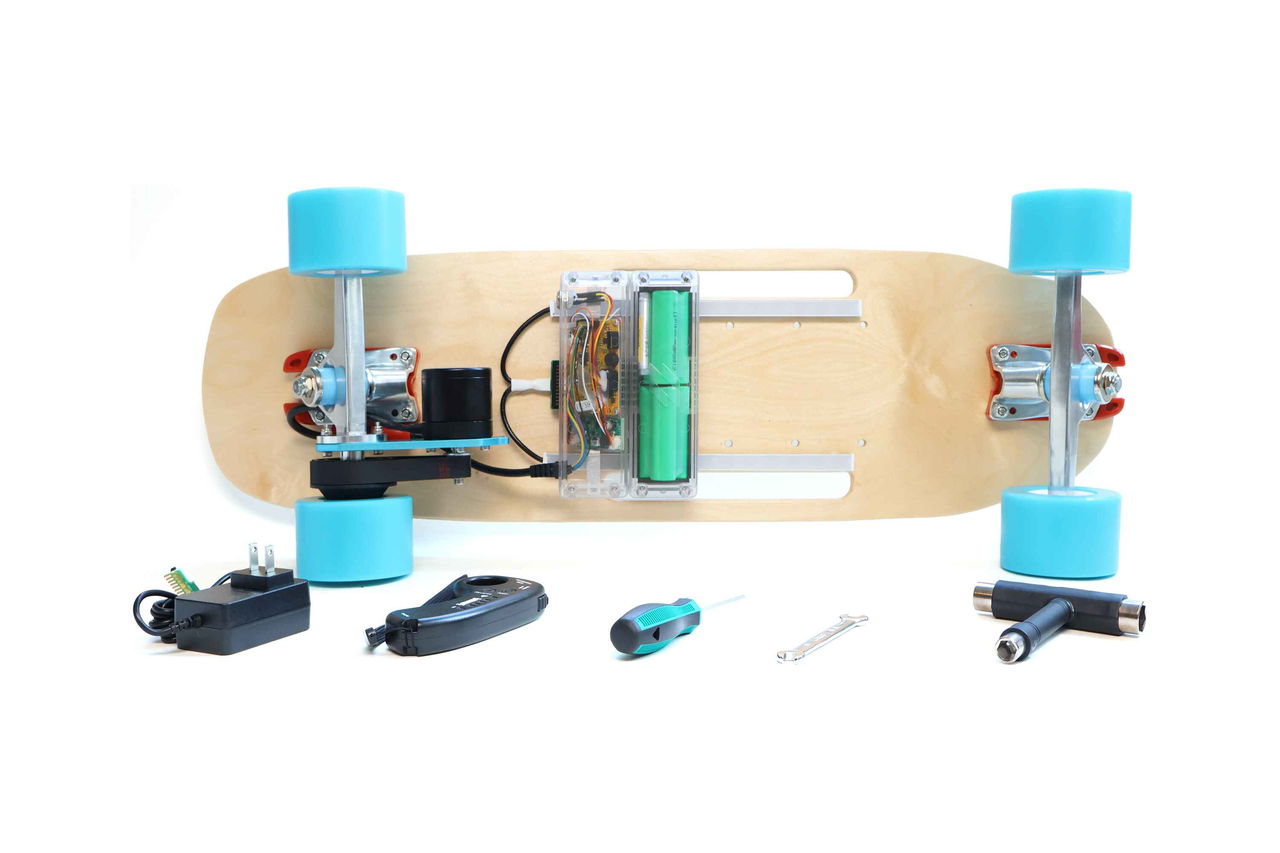
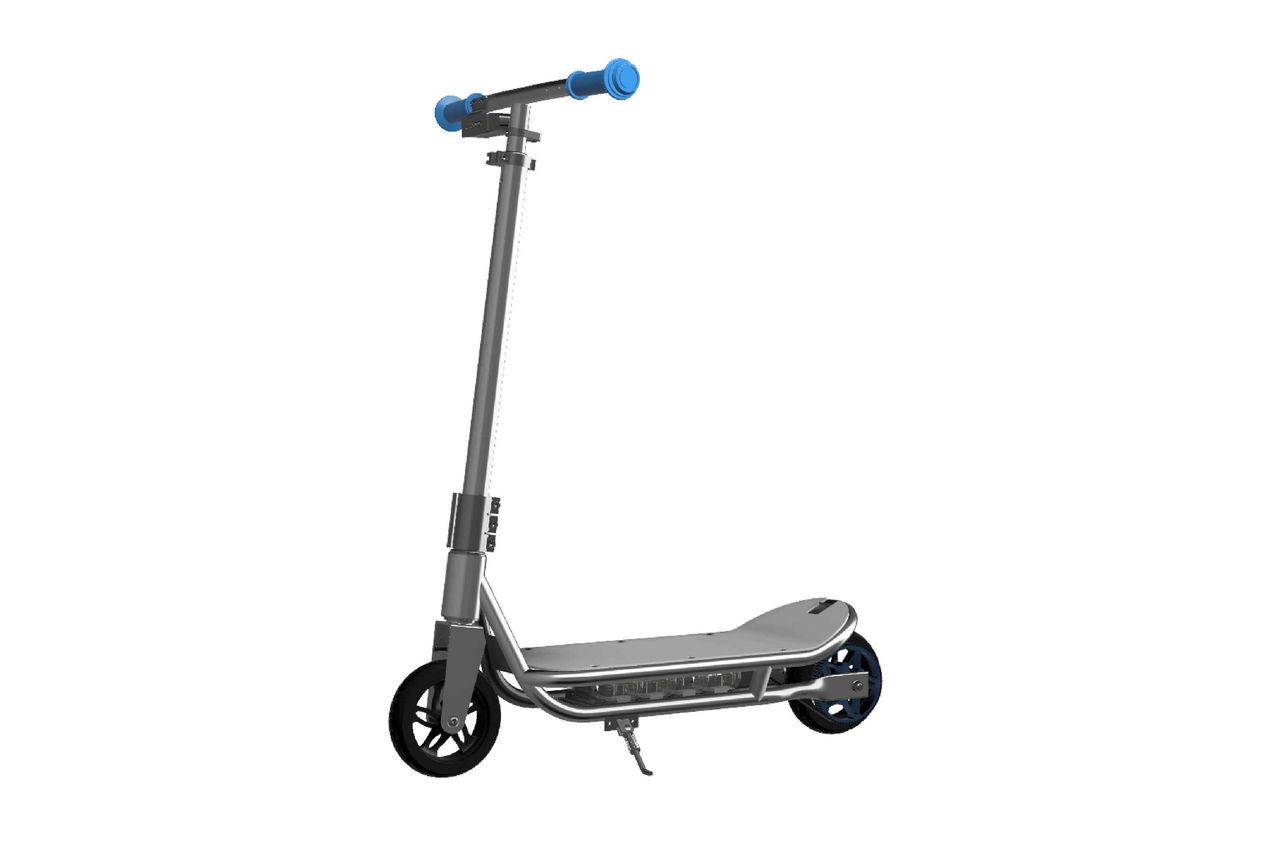

Snap Circuits Jr. SC-100 Electronics Exploration Kit
This kit introduces students to electronics by allowing them to create more than 100 different circuits with snap-together components. It’s a great entry-level kit for younger students interested in learning about electricity and circuits.
Key Skills Taught:
Circuit Design: Building over 100 projects, including alarms and light-controlled systems.
Logical Thinking: Understanding how different components interact within a circuit.
Hands-On Assembly: Developing fine motor skills and following schematic diagrams.
STEM Foundations: Gaining early exposure to electrical engineering concepts.
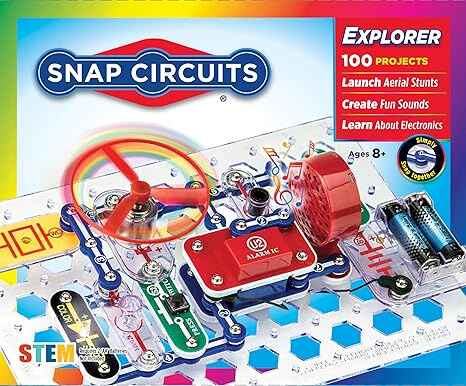
LEGO Mindstorms Robot Inventor Kit
LEGO Mindstorms kits combine the creativity of LEGO building with the innovation of robotics. Students can build and program their own robots, learning essential coding and engineering skills in the process.
Key Skills Taught:
Robotics Engineering: Constructing robots with motors, sensors, and structural elements.
Programming: Coding behaviors using Scratch or Python.
Problem-Solving: Designing robots to complete specific tasks and challenges.
Teamwork: Collaborating on projects, mirroring real-world engineering teams.
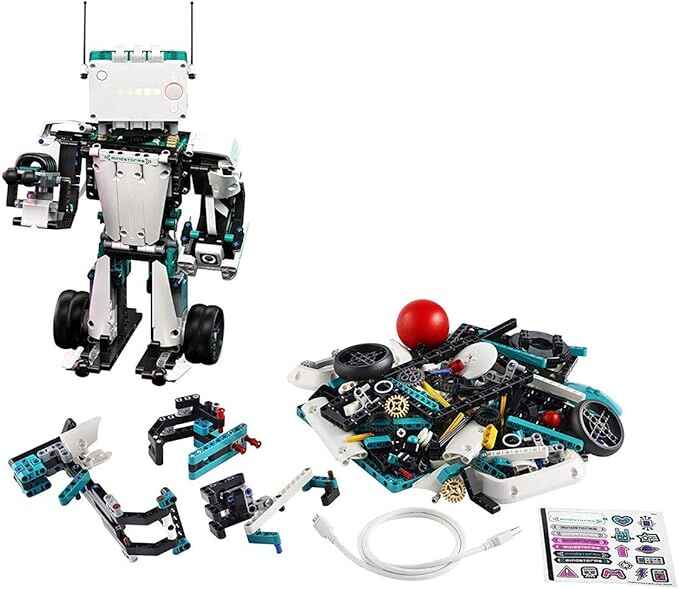
Thames & Kosmos Physics Workshop Kit
This kit teaches students about forces, motion, and simple machines through hands-on experiments and model-building activities. It’s perfect for students interested in physics and mechanical engineering.
Key Skills Taught:
Physics Principles: Understanding forces, energy, and motion through 73 experiments.
Mechanical Construction: Building 36 models like cranes and windmills to demonstrate physical concepts.
Analytical Thinking: Interpreting experimental results and understanding cause-effect relationships.
Scientific Methodology: Formulating hypotheses and conducting experiments to test them.
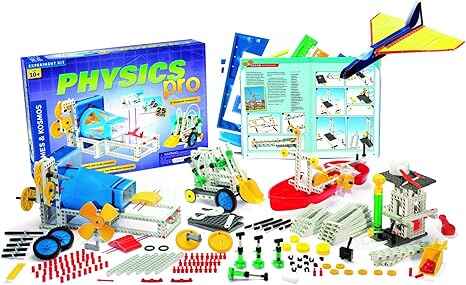
Raspberry Pi 4 Starter Kit
The Raspberry Pi is a small, affordable computer that students can use to learn about coding, hardware, and software development. The starter kit provides everything needed to begin exploring programming and creating projects. It’s an excellent option for individualized, portable STEM learning at home or in a classroom setting.
Key Skills Taught:
Computer Literacy:
Setting up and navigating a Linux-based operating system.
Programming Skills:
Writing code in languages like Python to control hardware and software.
Project Development:
Creating applications ranging from simple scripts to complex systems.
Hardware Integration:
Connecting sensors and actuators to build interactive projects.
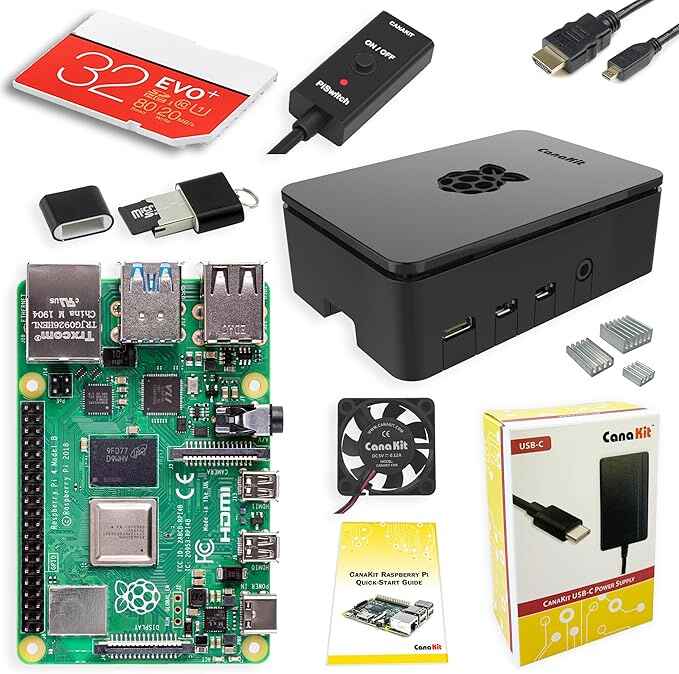
Tinkering Labs Electric Motors Catalyst STEM Kit
This kit focuses on engineering and electronics by allowing students to build machines powered by electric motors. It encourages creativity and problem-solving as students design their own unique projects.
Key Skills Taught:
Engineering Design:
Building machines using motors, wheels, and other components.
Creative Thinking:
Inventing unique solutions to open-ended challenges.
Problem-Solving:
Iterating designs to improve functionality and performance.
Understanding Mechanics:
Learning about motion, balance, and force through hands-on experimentation

STEM kits provide an invaluable opportunity for students to explore, create, and learn through direct engagement. Whether building an electric vehicle, experimenting with circuits, or designing robots, these kits lay the foundation for future learning and inspire curiosity in the rapidly evolving world of STEM. The individualized and portable nature of certain kits makes them even more powerful tools for personalized, flexible learning, allowing students to take control of their education, wherever they are.


